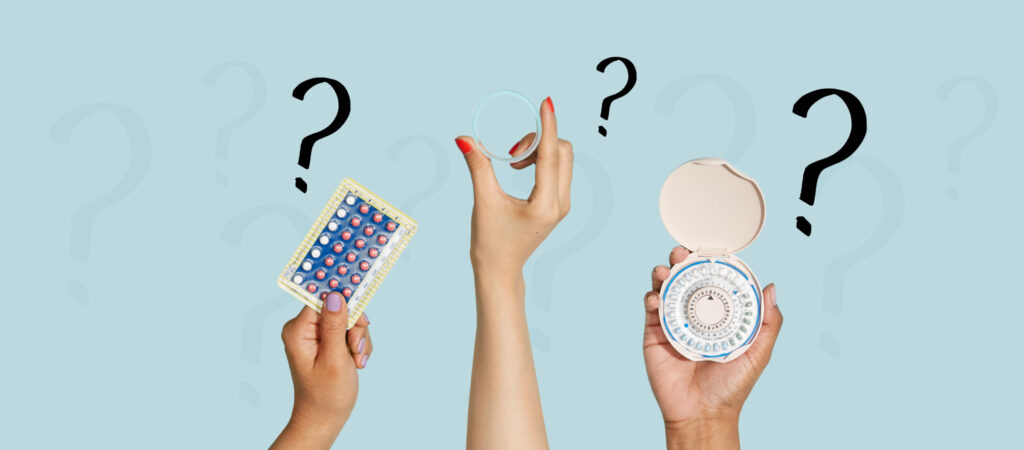Long-Term Effects of Birth Control, Explained
Real doctors explain the risks and benefits of taking birth control pills over the long term.
Whether you’ve been on the pill for years or are thinking of starting it for the first time, it makes sense that you’d wonder if hormonal birth control will have any lasting impact on your health. Surely putting hormones in your body to prevent pregnancy must have some side effects?
Overall, the pill and other forms of hormonal birth control are very safe. The pill works by introducing hormones that are similar to the ones your body produces naturally, but in amounts that prevent pregnancy by stopping ovulation, thickening cervical mucus, or thinning the uterine lining (or some combination of those three effects). “Although the hormones in birth control are synthetic they are very similar to what naturally occurs in your body, and that’s why they work!,” says Nancy Shannon, MD, PhD. “Our bodies have receptors waiting for these hormones, we’re simply changing the pattern of how you get them and what the levels are overall.”
Effects on Fertility
The hormones in the pill do not stay in your body for long, which is why you need to take one every day to make sure the pill is effective, and once you stop taking the pill your fertility will likely return to normal immediately. Within the first three months of stopping combination birth control pills, about half of women get pregnant, and most get pregnant within one year. In the case of the progestin-only pill (also known as the mini-pill), most women get pregnant within six months after they stop taking it.
Birth control from Nurx costs as little as $0 with insurance or $15 per month without insurance.
One type of hormonal birth control that can impact fertility in the near term is the birth control shot. It can take between three and 18 months after your last shot for your ability to get pregnant to return.
Although the pill doesn’t impact fertility, age does. Most women are significantly less likely to conceive in a given month at age 35 than they were at 25, so if a woman stops the pill after ten years and struggles to get pregnant it is probably the fact that she’s ten years older, and not her decade of contraceptive use, that’s the cause of her reduced fertility.
Effects on Cancer Risk
Taking hormonal birth control has some significant benefits when it comes to cancer prevention: Up to a 50% reduced risk of ovarian cancer, even decades after a woman has stopped taking the pill. The pill is also associated with a decreased risk of endometrial cancer.
However, research indicates that the pill slightly increases a woman’s risk of breast cancer, though the increased risk begins to decline once she stops. Breast cancer in premenopausal women is rare, so even with the slight increased risk posed by the pill breast cancer risk for these women is still quite low. But if you have a family history of breast cancer or other hormone-driven cancers then hormonal birth control might not be the right choice for you. Talk to your doctor to understand your options.
Risks vs Benefits of Being on the Pill
So hormonal birth control has very few long-term effects. There are some health risks to taking birth control pills, but these are almost entirely short-term risks that go away once you stop taking the pill. Combination birth control (which contains both estrogen and progestin) increases the risk of stroke, blood clots, and heart attack, so women who are already at increased risk for these things — including those who smoke, experience migraine headaches with aura, or have a personal or family history of blood clots — should not take combination pills. Progestin-only pills (also called minipills) don’t pose these risks and can be a good option for women who can’t take combination pills. On the other hand, the pill offers many immediate health benefits beyond pregnancy prevention: Less PMS, less acne, and lighter and less painful periods (and you can even use the pill to skip them entirely).
The Bottom Line?
“When we think of the side effects or health risks of hormonal birth control we need to compare it to the health effects of pregnancy and childbirth, which are one of the leading causes of death for women worldwide. Yes, birth control has an effect on women’s hormones, but so does pregnancy. Every single problem that might be associated with birth control is much more so with pregnancy,” says Julie Graves, MD, MPH, PhD. Hormonal birth control might not be right for everybody, but for those who choose to use it, it’s likely to be very safe in both the short- and long-term, and offer a range of health benefits as a bonus.
This blog provides information about telemedicine, health and related subjects. The blog content and any linked materials herein are not intended to be, and should not be construed as a substitute for, medical or healthcare advice, diagnosis or treatment. Any reader or person with a medical concern should consult with an appropriately-licensed physician or other healthcare provider. This blog is provided purely for informational purposes. The views expressed herein are not sponsored by and do not represent the opinions of Nurx™.





